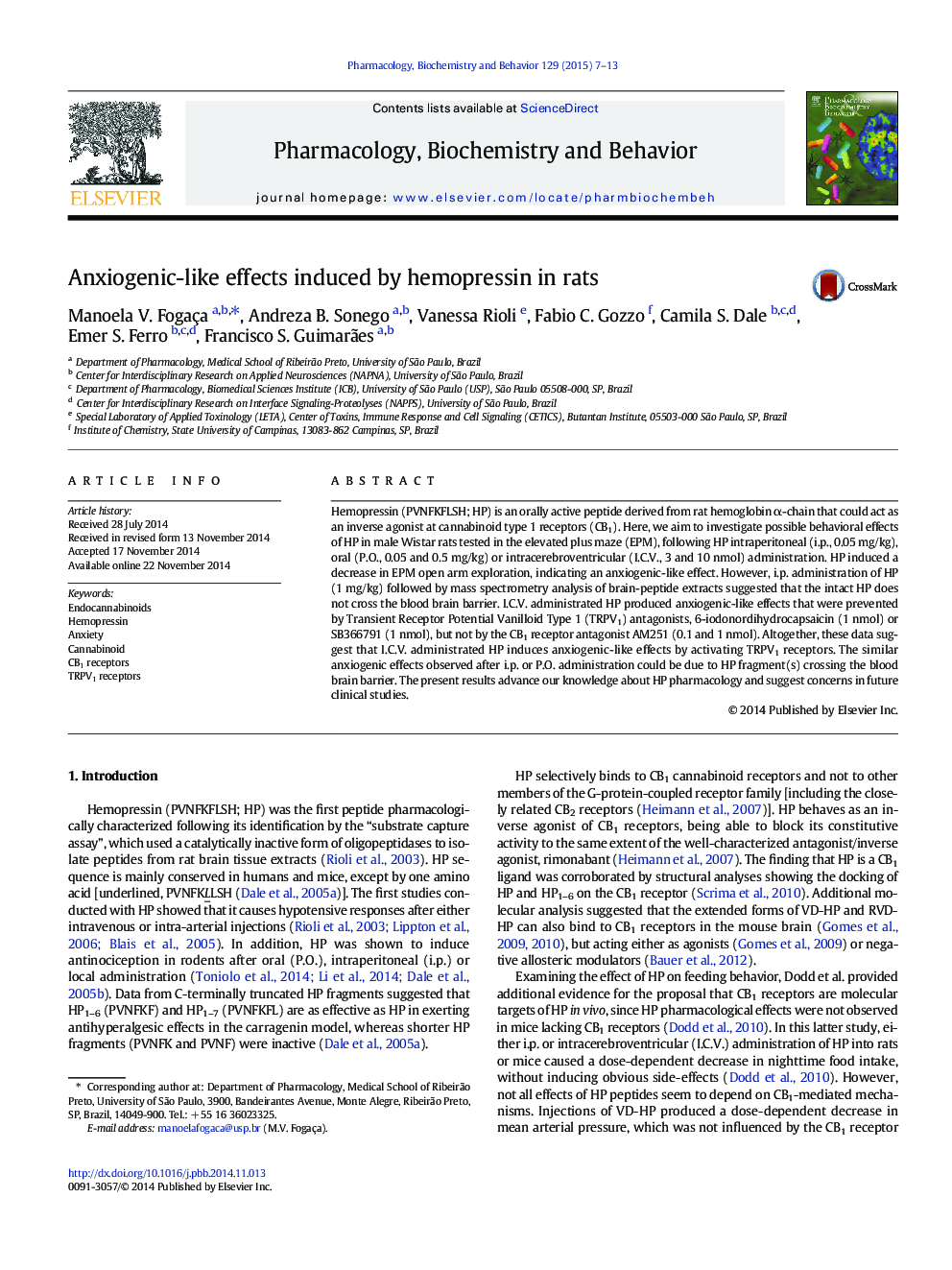| Article ID | Journal | Published Year | Pages | File Type |
|---|---|---|---|---|
| 8350791 | Pharmacology Biochemistry and Behavior | 2015 | 7 Pages |
Abstract
Hemopressin (PVNFKFLSH; HP) is an orally active peptide derived from rat hemoglobin α-chain that could act as an inverse agonist at cannabinoid type 1 receptors (CB1). Here, we aim to investigate possible behavioral effects of HP in male Wistar rats tested in the elevated plus maze (EPM), following HP intraperitoneal (i.p., 0.05 mg/kg), oral (P.O., 0.05 and 0.5 mg/kg) or intracerebroventricular (I.C.V., 3 and 10 nmol) administration. HP induced a decrease in EPM open arm exploration, indicating an anxiogenic-like effect. However, i.p. administration of HP (1 mg/kg) followed by mass spectrometry analysis of brain-peptide extracts suggested that the intact HP does not cross the blood brain barrier. I.C.V. administrated HP produced anxiogenic-like effects that were prevented by Transient Receptor Potential Vanilloid Type 1 (TRPV1) antagonists, 6-iodonordihydrocapsaicin (1 nmol) or SB366791 (1 nmol), but not by the CB1 receptor antagonist AM251 (0.1 and 1 nmol). Altogether, these data suggest that I.C.V. administrated HP induces anxiogenic-like effects by activating TRPV1 receptors. The similar anxiogenic effects observed after i.p. or P.O. administration could be due to HP fragment(s) crossing the blood brain barrier. The present results advance our knowledge about HP pharmacology and suggest concerns in future clinical studies.
Related Topics
Life Sciences
Biochemistry, Genetics and Molecular Biology
Biochemistry
Authors
Manoela V. Fogaça, Andreza B. Sonego, Vanessa Rioli, Fabio C. Gozzo, Camila S. Dale, Emer S. Ferro, Francisco S. Guimarães,
